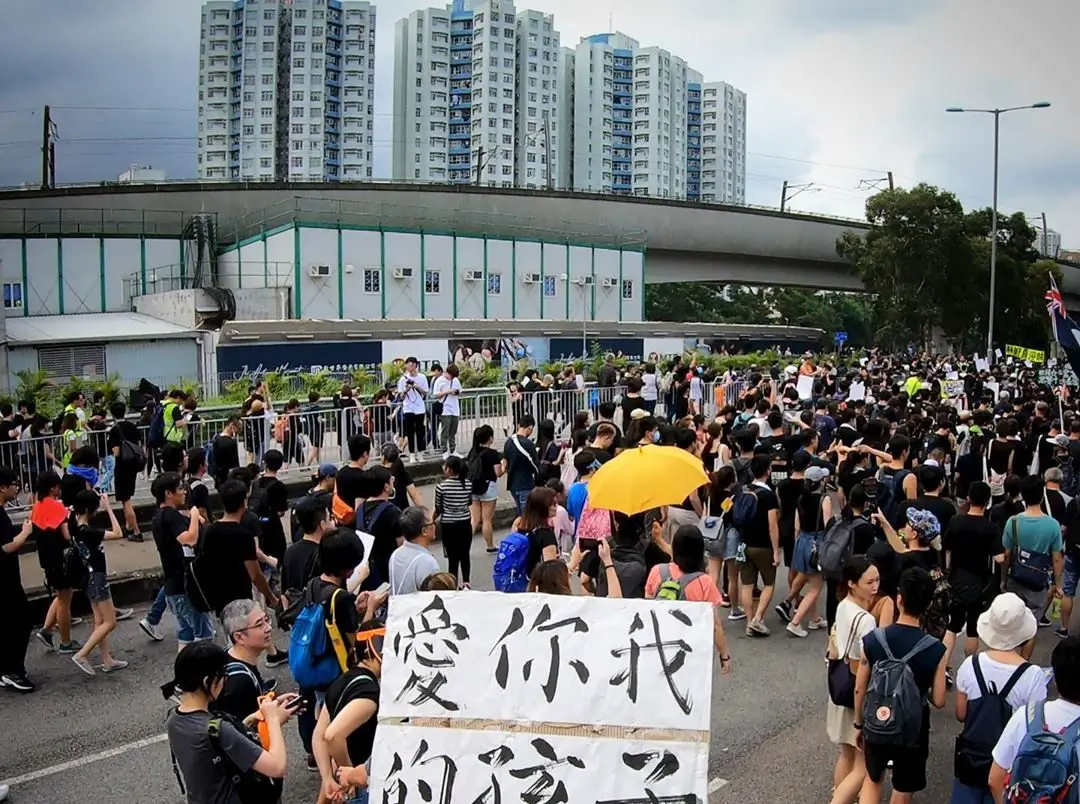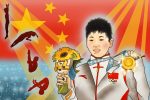In June, the people of Hong Kong gathered in one of the largest demonstrations in international history. Over two million protestors marched against the proposed extradition bill, which would send trials to China rather than through Hong Kong’s own judicial system.
There’s no accurate way to describe how incredible it was — how the chants shook buildings; how a sea of black shirts surged through streets; how a people changed their nation by uniting to protect it. There’s no true way to explain it unless you were there to see it. Luckily, someone happened to find themselves in the center of Hong Kong and this new chapter of history.
In June, I flew to Singapore to begin a monthlong hiatus from life. My uncle and his family owned a home there and allowed me to live with them for the time being. The plan was to see all that we could of the country in three weeks, with an additional week spent in Hong Kong to renew passports.
The fact that the protest occurred at the same time was a major coincidence; renting an apartment in the central part of town was even bigger. It was all over the news at the time, so my family decided to venture out and observe the demonstration.
Initially, Hong Kong’s chief executive, Carrie Lam, announced the bill for the greater good of the country. It was a response to a murder in Taiwan committed by a Hongkonger, and because he couldn’t be tried for murder in his home country, Lam proposed that he and people like him be extradited for their crimes.
The bill counters fugitive activity by sending residents to their trials in mainland China. However, in the majority opinion of Hongkongers, the Chinese judicial system is not only flawed but severely limits the growth of the booming business district. Hong Kong has also considered itself independent of China, and for a long time at that.
Piecing together evidence from my Singapore family, the internet and English-subtitled news, I began to see the core reasons for the protests. On a more visible note, Hong Kong holds many institutions independent from China, one being its judiciary.
The Chinese judicial system is known to have less than fair trials, inhumane punishment and minimal separation of powers. But the less visible facts have more to do with the unofficial independence Hong Kong holds. With the extradition bill, China is granted more power over the semi-autonomous region.
Hong Kong is known for its business, tourism and art culture, and throughout history, protesting hasn’t been a common factor. But when a major political conflict does occur (usually with China), Hongkongers never fail to make a statement.
The last two decades have seen the 2003 and 2014 demonstrations occur with both incredible turnouts and overwhelming stature. The latest protest had two million of Hong Kong’s seven million marching the streets with black clothing and umbrellas. Led by their youth, protestors crowded malls, monuments and government agencies in solidarity for their future.
Unlike Hong Kong, it seems like the American people will wrap themselves in almost any dispute — it’s in our country’s DNA. America was built through arguments and demonstrations, and as a kid who spent my life there, it’s a fact that you come to understand. Besides hearing protests on the news, I’ve participated in a few over the years as a politically-active teenager.
One thing I will say is that I’ve never witnessed anything quite like Hong Kong. There was a point where my family and I got on an elevated part of the city, and it felt like we were stranded on an island with sea all around us. People streamed in for hours with little deceleration.
Other than that, there are three basic factors that set the extradition protests apart from anything I’ve seen in America.
Hong Kong isn’t usually this politically tense
The country is known for its financial opportunities, but these can only be achieved when there is stability, and based on its relation with China, the government has little tolerance for crime and violence. It’s not quite authoritarian, but it’s monitored democracy. It’s a common belief that the bureaucracy is for the people and the people trust it. The only major conflicts have been against Chinese encroachment, which has negative effects on trade and business. So when Hongkongers protest, its citizens usually take a united front.
There’s no protest regulation in Hong Kong
Besides police and military intervention, Hong Kong has no regulations for protesting. The result has led to a handful of violent encounters in the past month that the government would consider “riots.”
The United States has rules for staging protests, and they’re usually monitored by the police. In this way, the government has killed two of its peskiest birds with one stone — violence and the ability to affect policy. However, the U.S. has these rules because it’s known for political tension. When Hong Kong protests, there is little the government can do to stop or even contain it.
A protest has never been this concentrated
America has had its fair share of large protests. From support of marginalized peoples to anti-war protests, crowds have gathered in countless cities to speak their minds about government action. While demonstrations have numbered up to 4 million, it’s not usually in one city. A single American protest can span throughout the country, but even then, the percentage of protestors compared to the total population is much smaller.
Hong Kong, on the other hand, had almost 30% of its residents show up on the same day in the city’s center. Accompanying the youth were businessmen, senior citizens and families with children who came out to support Hong Kong nationalism. When residents challenged the bill, they did not challenge it lightly. The demonstration proved to be bigger than any we’ve seen in the States.
We were stuck on our “island” for hours. We finally managed to wiggle through a river of people, jump a roadblock and walk on a closed highway to get back to our apartment. The protests continued long after we returned to Singapore.
A few weeks later, my family woke up early to send me home. That morning, we were informed that the bill was declared dead, but violence broke out when the full demands of the people were not met.
The Chinese extradition protests continue to bring a nation of people together in solidarity and pride for their country. The population has let out their cries, and they will not stop until the government responds.
















